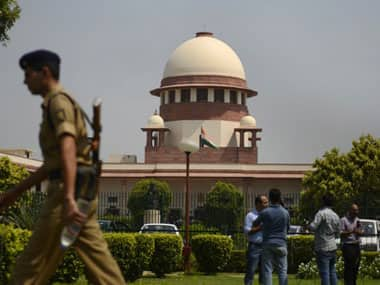The striking down of the National Judicial Appointments Commission Act 2014 (NJAC Act) should not surprise the cognoscenti. Our Companies law allows a private sector company to find its own auditor, knowing full well that it fosters mutual back scratching tendencies, inimical to meaningful audit of accounts. The new Companies Act, 2013 of course provides for rotation of auditors but that is not the same as appointment by a neutral body like CAG for public sector companies. Small wonder, the quality of audit and audit report of public sector companies come smelling of roses in the matter of exposing shenanigans vis-à-vis the laconic, tick box reports of auditors of private sector companies which by and large look askance at propriety issues. This self-preservative instinct is quite widespread in our country. A doctor would be tried by Medical Council of India which is allergic to its brethren being exposed to consumer courts onthe self-serving plea that only a doctor can understand the compulsions and constraints of a fellow doctor. Ditto for lawyers, CAs and advertising professionals and even journalists. Self-regulation alas has resulted in no regulation and mollycoddling of professional guilt and negligence. [caption id=“attachment_2471354” align=“alignleft” width=“380”]  Supreme Court of India. AFP[/caption] The Supreme Court has declared the NJAC Act void and unconstitutional apparently in keeping with self-promoting and self-preservation instincts. The law it has struck down has built-in checks to prevent the executive from running amuck. If there can be three non-judicial members, there would be three judicial members keeping vigil against the possible high-handedness ofthe government of the day when it comes to appointments to the high courts and the SC. Yet, it has chosen to strike it down. In the US, the President appoints federal judges subject to ratification by the Senate. Judiciary has absolutely no role in the appointment of fellow judges. This is as it should be. The UK judicial appointments commission has15 members out of which 5 must be judicial members. We on the other hand have gone out of the way to keep the judiciary happy. Yet the SC has chosen the path of collision. Collision course because there is no way the erstwhile article 124 can be resurrected. It was given the quietus when its place was taken by article 124A. Now with the striking down of article 124A by the SC, there would be a void because the SC order does not have the effect of resurrecting article 124 that never said judges will appoint fellow judges but only talked of consultation between the government of the day and the SC. First the SC read more into article 124 by giving a bizarre meaning to the term consultation—concurrence. And now that article 124A had put an end to such bizarre powers, the SC has chosen to hit back—and scrap 124A altogether. No room for discussion, no improvements suggested. If the SC deemed it infra dig rubbing shoulders with lesser mortals entering the NJAC portals, it could have suggested that the three non-judicial members—one being the incumbent law minister ex-officio and two being persons of eminence—should have had judicial or legal experience. That would have been a valid concern in a country where such an open-ended regime fosters roping in of people from the charmed circle like the air-India board being packed with sundry film stars and lyricists. The Supreme Court adjudicating as an interested party in its powers and deciding to arrogate to brother judges the power to appoint their brother judges, does not do much to address the crisis of credibility high judicial institutions are facing in the country.
The Supreme Court has declared the NJAC Act void and unconstitutional apparently in keeping with self-promoting and self-preservation instincts. The law it has struck down has built-in checks to prevent the executive from running amuck. If there can be three non-judicial members, there would be three judicial members keeping vigil against the possible high-handedness ofthe government of the day when it comes to appointments to the high courts and the SC.
Advertisement
End of Article


)

)
)
)
)
)
)
)
)



